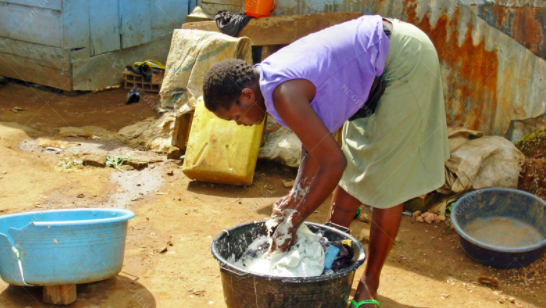Resonance FM: Poverty and the dire state of women in South Africa

Resonance FM: Triple Challenge, Inequality, Unemplyment and Poverty
A magazine show covering African development issues hosted by Sonny Decker. This week: More women, especially African women, in South Africa are disadvantaged and poorer than men according to Statistics South Africa. Greenpeace Africa Climate and Energy Campaigner Thandile Chinyavanhu, Studies in Poverty and Inequality Institute (SPII) Director Isobel Frye, and The Embrace Project Director and Co-Founder Lee-Anne Germanos share their thoughts on why this is the case.
58.6% of women vs 54.9 % of men are experiencing difficulties finding jobs according to new research released by Statistics South Africa. Millions of South African women are suffering of hunger and unemployment, they are missing meals and shielding hunger from the children and the elders in their household.
Poverty is conceptualised in South Africa by the government among ordinary South Africans, particularly poorer women. Isobel Frye of the Studies in Poverty and Inequality Institute broaches the subject of poverty in the country, “The issue around poverty particularly in South Africa is one that everyone knows of as being in dire levels of structural poverty, but we are not a poor country. “
56% Of People in our country are above the poverty line. We have such deep levels of poverty that we have generations of children being born and raised without the necessary resources needed for proper development.
How does the government address poverty?
The poverty, inequality and unemployment issues that the country faces are seen as the Triple Challenge, poverty is mostly seen as income-based.
The Government refers to the poverty line, lower poverty line and upper poverty line as indicators of such. “We, at SPII, have conducted numerous research projects and surveys on what a decent standard of living is, and what it means to different people." Isobel adds.
Poverty is seen as a lack of jobs, there is a notably high rate of unemployment in the youth reaching 47%. As a South African, and particularly a woman, you have a very limited chance of finding a job, let alone one that pays enough for one to remove oneself from the issues revolving around poverty.
During COVID-19, women were only recognised as rights holders if they were giving care to children and receiving a Caregivers grant, they were not entitled to receive a grant in their own right or name, as they were denied due to their already receiving the Caregivers grant which was not particularly used themselves but for their children, that has been remedied now.
Is it important that these issues should be treated separately?
The lack of economic independence perpetuates Gender-based Violence – dissects Lee-Anne Germanos, her research found that women-headed households are 40% poorer than male-headed households, yet female spearheaded households are likely to have more dependants, some of which including parents, in-laws and children.
The gender pay gap in South Africa is sitting at 30%, which is 10% higher than other countries in the continent. The knock-on effect is that women are unable to save for retirement as they get older, due to their financial responsibilities increasing. They have a longer life expectancy than men do, yet they support more people in the household. Women cannot look after themselves in the long term, Gender-Based Violence is also perpetuated to economic dependence in cases where women cannot leave their husbands because they are financially dependent on them for survival.
Are these programs involving people direct and enabling the poor?
Thandile Chinyavanhu adds that consulting with communities are ignored, our government wants money, and they are not committing to mitigating climate change. People are kept in a state of poverty because they cannot depend on state services, people are unable to make rational choices, what do we need to live well? A distribution of profits amongst people, fairer development systems and equal policies.
We have a very high informal economy, not because people in the continent don’t like formal employment, but rather that we pay for extractions and services from other countries, “we can see a thriving continent if we didn’t send the work out of the country.” – Isobel Frye
Basic income grants are essential in these cases, if you are able to give households sufficient income, women particularly, would be able to start micro enterprises and building up the economy. You need to meet a criterion to receive a grant, if you want to start informal activity, you need to weigh if you get cash a month or uncertain income. If everyone has a dependable income they can start small businesses, child care, mobilisation and trading.
“Policies for the poor are often poor policies,” Isobel highlights, if policy makers think they’re saving money by cutting income to the poor, it will happen.
Source: Resonance FM
Recent Posts
- Can we afford NOT to have a BIG in South Africa? – Podcast
- Joint Stakeholder Submission on the Right to Adequate Standard of Living in South Africa
- SPII’s Contribution – Submission to UN CESCR
- Political Elites Must Break Ranks to Crush Poverty, Inequality
- Podcast: High Price to Pay for the Rising Cost of Living
- More People Believe They Are Living Under Poverty in South Africa
- Nkululeko Majozi Speaking on Subjective Poverty in South Africa
- Podcast: In The Ring With Eusebius McKaiser – Can we afford a Basic Income Grant?
- Extending the Social Relief of Distress grant is not enough to alleviate plight of poor, says civil society
- Global Basic Income Grant Pilots Since 2000











